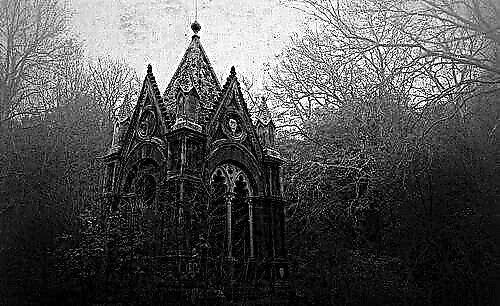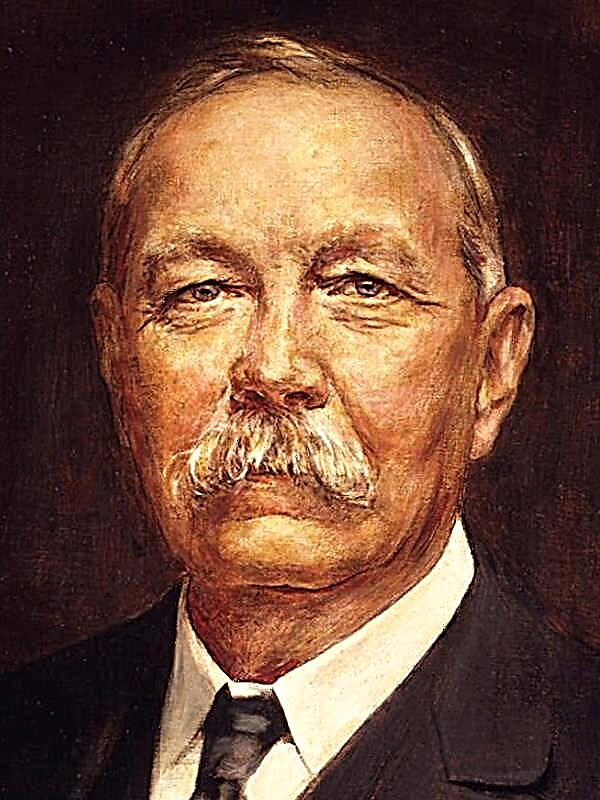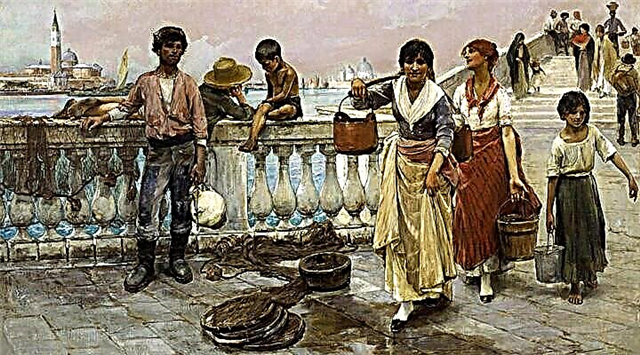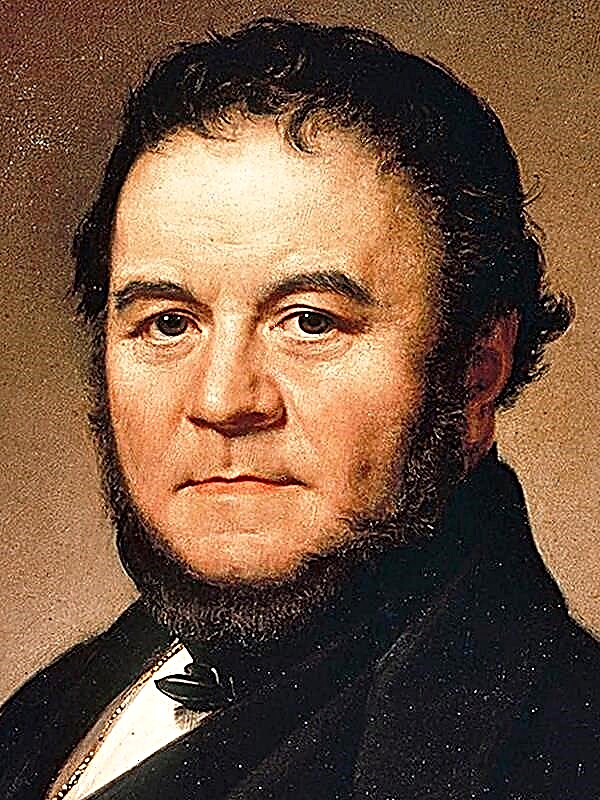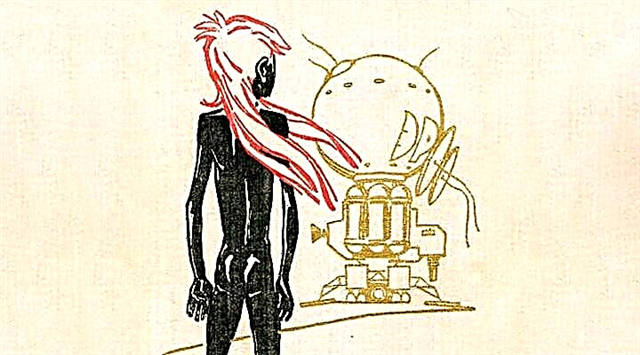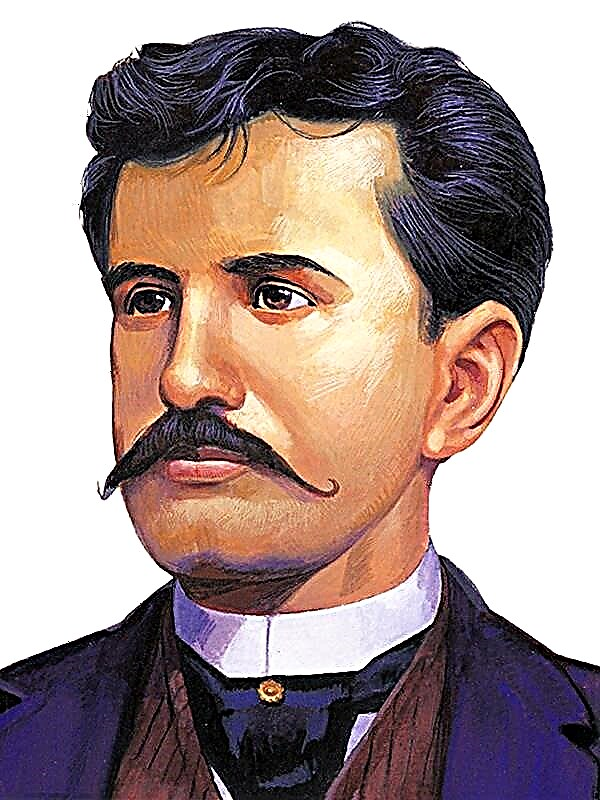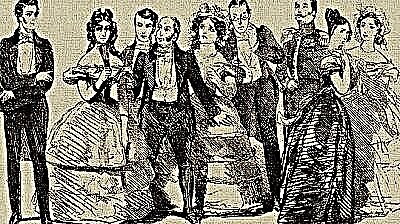Sergei Yesenin is one of the most prominent representatives of the silver age, distinguished by frank truth in his works and fate shrouded in mysteries. Poetry became his calling at an early age and accompanied throughout his life's journey. Each poem has a deep meaning and part of the poet’s soul. The penetrating lines of "Powders" were no exception.
History of creation
“Powder” refers to the early work of the poet when he is just beginning to search his own way. It was written in 1914, when Yesenin stayed in Moscow. This year was significant in the life of the poet, since it was then that his works were first published in the journal.
Yesenin was soon called up for service, where he wrote his first collection of poems, "Radunitsa." The atmosphere of the war left its imprint in the poet’s life and taught to relate to the world around him in a special way, therefore, special attention is paid to nature in the work of Sergei Alexandrovich.
The poem "Porosh" is entirely devoted to mother nature and its beautiful components. It reflects the values of the poet, who notices and attaches importance to every little thing: from the ringing of hoofs to falling snow.
Genre, direction and size
The literary size of this work is the four-footed trochee. When writing, the poet used a cross-rhyme. The genre group of the poem is landscape lyrics, as the text praises the beauty of nature.
Since Yesenin at that time was a frank imagist, many of his works were written in this direction. The essence of imagination was the use of metaphors that create a straightforward, non-veiled image with a single meaning. However, when assessing the course, in the mainstream of which the author worked, it must be understood that his identity as a result crossed out the poet from all existing associations, and he began to work on his individual, unlike any other style. He himself liked to call himself "the last poet of the village", and this definition of his activity is very close in spirit to the poem "Porosh".
Images and Symbols
As mentioned earlier, Yesenin does not tend to hide images in the description and enter mysterious characters. In the poem "Porosh" the central way is nature and all its manifestations, about which the poet speaks openly.
Horse rides, a lot of space.
Fell snow and shawl.
Endless road
Runs off the tape into the distance.
The author describes the snow as a natural phenomenon, pays attention to the horse and woodpecker as representatives of the animal world and admires the vastness of the surrounding landscape. Each image is imbued with the love and caring attitude of the owner to his land. It can be assumed that the lyrical hero, a kind and subtly feeling beauty person, goes on a journey and wants to remember every piece of his native land.
Themes and mood
Reading this poem, a person feels harmony with nature, in his soul pacification and a kind of bright longing for his native land are born. The main theme of “Powders” is the love of nature and all life. How important it is to appreciate everything that is created around us and enjoy it. Along with this, the theme of human values is closely intertwined; do everyone consider the world around them a value? The lyrical hero accentuates the reader’s attention to the fact that any passerby should understand his pride, because all the treasures of his native land belong to its inhabitants, and therefore they must be able to be appreciated.
Another issue raised is the love of a small homeland. In Esenin’s lyrics, the idea is clearly traced that native lands give emotional nourishment to a person and charge him with bright feelings. However, not everyone can feel this and understand, and therefore there are people who live all their lives in blindness and petty malice, because they are not allowed to receive an emotional charge.
Meaning
The main idea of the poem is that nature is multifaceted - it is snow, and forests, and animals, and roads, and much more. And all this is wonderful in its own way, and one must be able to distinguish beauty, respect and love it.
The poet teaches to receive little joys from the perception of such simple everyday phenomena, to be able to see the meaning in the ordinary. This is his main idea. This perception of not only nature, but the whole world makes people a little more attentive and wise. After all, only a sage is able to discern and feel all the charm of the earth.
Means of artistic expression
To give his poem an artistic cut, Yesenin uses various techniques of expressiveness. Already from the first line you can trace the parcel - deliberate breakdown of the proposal into short segments: “Food. Quiet…". In Porosh, the poet repeatedly turns to this remedy: “she was pulled like an old woman”, “like a white scarf”. To describe the length of the road, the author uses a cognate comparison technique - a metaphor - "runs away into the distance with a tape." Regarding his path, along with metaphor, personification is also used - “runs away”, and the epithet - “endless road”. It is worth noting that the proportion of epithets in this work is small.
The trails in the poem “Porosha” adorn the description, immersing the reader in the atmosphere of natural abundance of their native land, which we can only see outside the city, in a rural pastoral.

